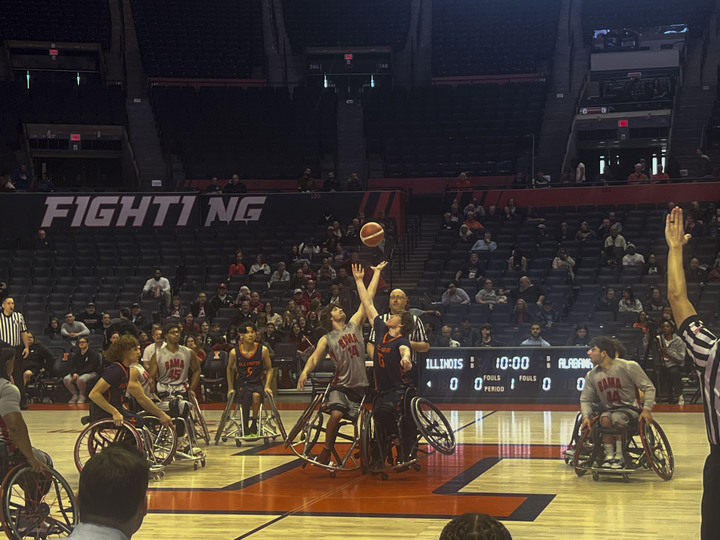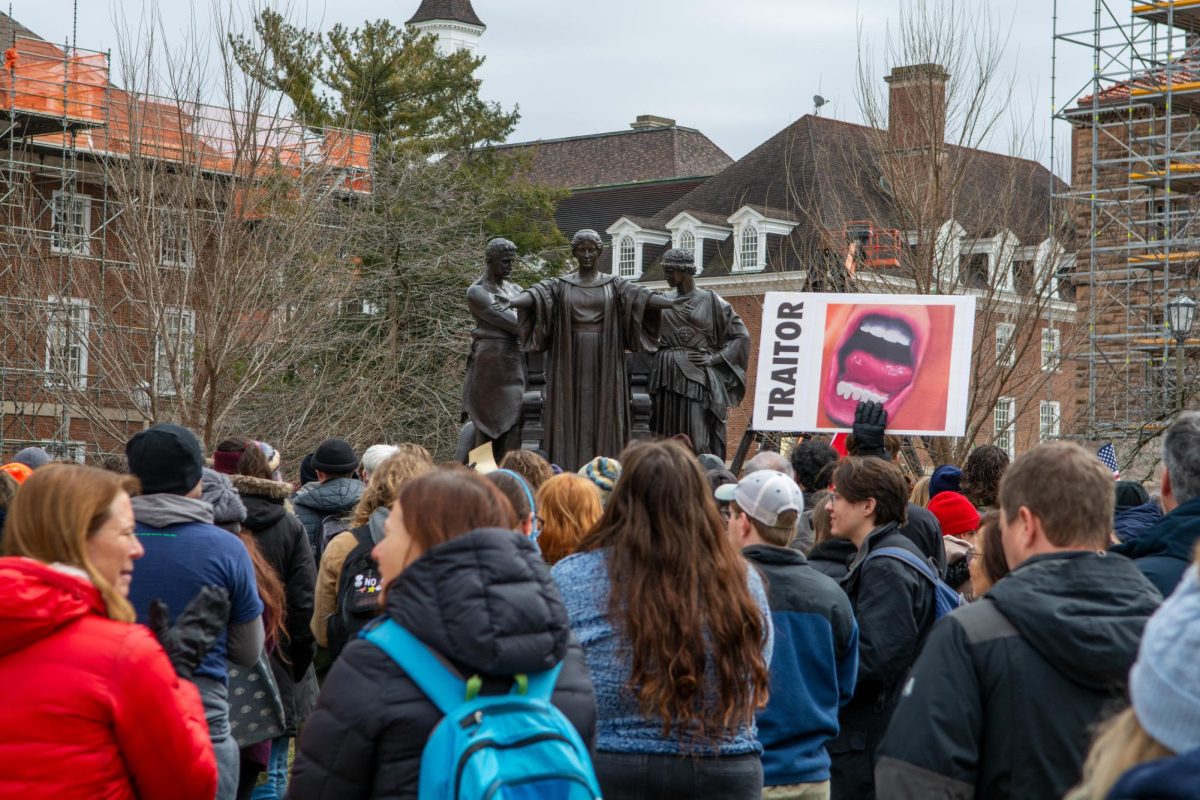Twenty years ago, when Ian Nelson was born, times were hard for people with disabilities. It wasn’t very common for people like Nelson, who is confined to the limits of a wheelchair, to do things like go away to college.
The Americans with Disabilities Act of 1990 (ADA), changed life for those like Nelson, who require assistance for what many consider mundane daily activities. The act, a federal anti-discrimination statute which provides civil rights protection to individuals with disabilities, was made to remove barriers preventing qualified individuals with disabilities from having equal opportunities available to persons without disabilities.
As a result of this act, three years ago, when Nelson researched disability-friendly schools, he saw that the University of Illinois offered him a place where he could stay in facilities that catered to his needs, while still having a college experience.
Nelson had found the Beckwith program, housed in a University residence hall that specialized in accommodating the residential needs of people like himself.
“I met a lot of nice people and made most of my friends (at Beckwith Hall),” Nelson said.
Get The Daily Illini in your inbox!
Now, Nelson will move on from Beckwith and relocate to one of the rooms in the new residence hall, Nugent Hall, that are big enough to house students with disabilities that are not with the Beckwith program.
“Living in Beckwith was like living in a house,” Nelson said. “Now, I’m moving on and it will be different, but new and exciting.”
The new residence hall exemplifies the University’s commitment to the ADA, which celebrated its 20th anniversary Monday.
“The University has been a leader in accommodations for students even before the act, and we are happy to comply with it,” Associate Chancellor William Berry said. “As a public, state landmark university we want to have equal rights for all students, and we actually value that the University has these qualities.”
This year, the University was one of about 800 institutions who submitted a “Proclamation of Recommitment,” showing that an organization is recommitting to the vision and spirit of the Americans with Disabilities Act. Those proclamations are part of the 2010 by 2010 Campaign, a movement to collect 2,010 proclamations this year, sponsored by the National ADA Symposium.
State and local governments, schools and colleges, businesses, organizations, assistants and advocates were encouraged to send in proclamations showing they care about full inclusion for individuals with disabilities.
According to Karen Wold, learning disability specialist for DRES, it’s important to remember that the ADA is about people with all different types of disabilities, not just the ones a person can see.
“There are hidden disabilities, learning and psychological ones, that impact people just as much,” Wold said. “The act opens the door for everyone with disabilities.”
The act aids not only students, but faculty too.
Chad Martinez, assistant director for the Office of Equal Opportunity and Access, works to make sure the proper resources are given to employees with disabilities, whether they be providing accessible bathrooms, voice recognition software or something as simple as a chair to sit in while teaching.
Martinez believes the act is necessary to put a spotlight on the individuals with disabilities.
“There abilities can be showcased and not seen as bad things,” Martinez said. “This act shows a continuing area of improvement for people who could use the help. Hopefully this act will continually be built upon to further equality for everyone who needs it.”






